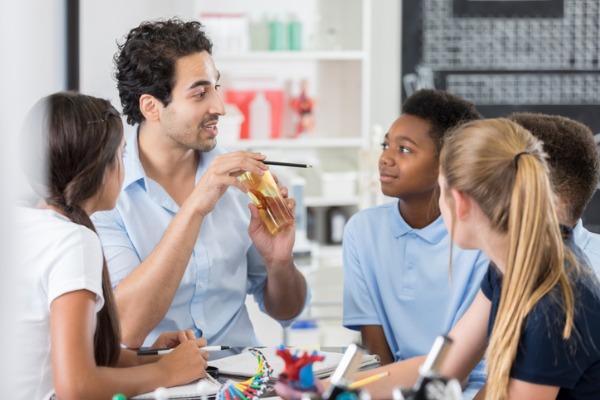Modelling is the only buzzword we should be uttering, says Mel Greenwood. She explains five ways to model your mindset to best impact your students.

We should never belittle our ability as an educator. Everything we do and say is being watched and scrutinised by our children and young people and it is up to us to choose how we will be perceived by them.
Don't underestimate the power of making our thinking visible when introducing new concepts.
Explore modelling a good character and think about modelling behaviours, dispositions, values and virtues. Help our children and young people to know what is good, to love and do good. (A great phrase borrowed from 'The Jubilee Centre')
How we behave will impact how our children behave and respond to the situations they may face. We need to be the role models we want to see in our students.
Traits of a good role model may include:
Educational systems prioritise character development in varied ways. Ofsted refer to building character in their framework, talking of developing traits, dispositions and virtues that support our children to flourish.
I love that word - 'flourish'. The idea that our students are like plants that need to be supported and watered as they grow and thrive in our community. We can be the water to that growth just like their parents hopefully are.
All adults with contact to children and young people have a responsibility to help them thrive. Make choices that help our children and prioritise virtues in our thinking, actions, and behaviours. Make the abstract concrete by modelling expectations and each value, so that children can see what is expected of them.
Make a list of every disposition you want to see in the young people you work with. If they are vital in supporting your young people and their society to thrive, then they are virtues.
Some examples are below.
| Compassion | Empathy | Integrity |
| Kindness | Determination | Motivation |
| Curiosity | Justice | Reflection |
Your school may already have an identified list of virtues but are you explicitly modelling them? Are these values living, or are they occasionally referred to?
"Help our children and young people to know what is good, to love and do good."
There is not much more manic than a day in the life of a teacher. How do we have time to teach everything we need while supporting children in developing character? Modelling is a tremendous start.
Here are five strategies you could try. A change of mindset is all that is needed.
We are what we see in others. You are like a mirror and the behaviours that you model are what you will begin to observe in your classroom.
Focus on modelling; your students will flourish and your class community will be thriving. You may even begin to see behaviour improve too. Think about the behaviours you model as an adult to observe those behaviours in others.
After break time, we spend an inordinate amount of time sorting out playground problems. Through modelling values and discussing virtues, hopefully, we can use this time to be more proactive, and less time is devoted to these issues.
Stop and listen to the students. Is the language they are using changing, and they can deal differently with the conflicts they face? What words do you hear? Highlight these so that you are promoting and hearing healthy dialogue.
Speak with parents and carers of the children and young people in your care. Have they noticed a difference in the way they behave at home? Encourage them to model also.
Never underestimate the power you hold as an educator in shaping young minds and lives. Model the behaviours, dispositions, values, virtues, and language choices and show compassion for the young people you work with.
If you are interested in finding out more practical strategies to develop character below are some useful links.
My favourite book at the moment is PRIMED by Martin Berkowitz because it provides so many practical ideas.
Enjoy!